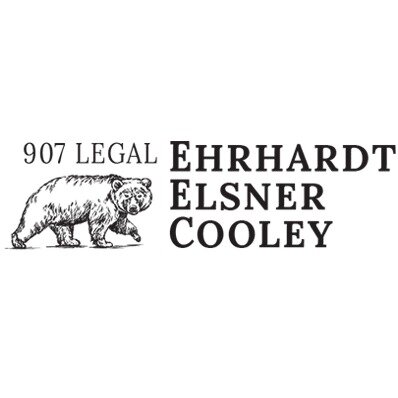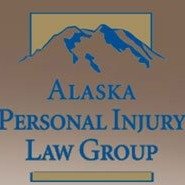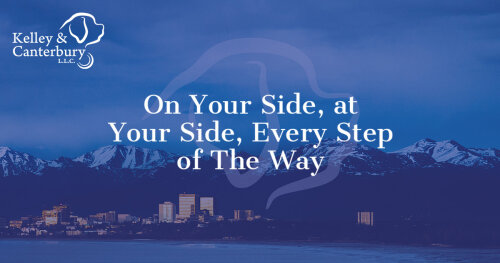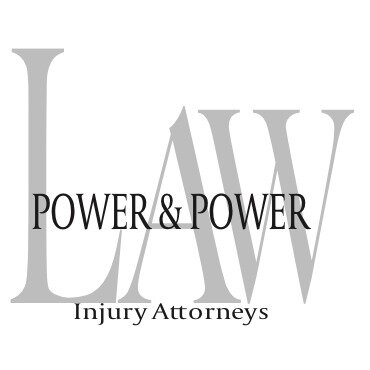Best Accidents & Injuries Lawyers in Alaska
Share your needs with us, get contacted by law firms.
Free. Takes 2 min.
Or refine your search by selecting a city:
List of the best lawyers in Alaska, United States
United States Accidents & Injuries Legal Articles
Browse our 1 legal article about Accidents & Injuries in United States written by expert lawyers.
- What to Do After a Serious Car Accident in the US: A Legal Step-by-Step Guide
- Call 911, get medical help, and do not admit fault. Photograph the scene, vehicles, and your injuries, and get witness names and the officer's report number. Report the crash to your insurer quickly. In no-fault states, PIP deadlines are short (e.g., Florida requires initial treatment within 14 days; New York... Read more →
About Accidents & Injuries Law in Alaska, United States
Accidents and injuries law in Alaska covers legal rights and remedies for individuals who have been harmed physically or emotionally due to the negligence, recklessness, or intentional acts of others. This area of law, often called personal injury law, includes car accidents, slip-and-falls, workplace accidents, medical malpractice, product liability, and more. The unique geography, weather, and industries in Alaska may contribute to specific risks and challenges not found in other states. Alaska's legal framework aims to help victims obtain compensation for their losses, hold responsible parties accountable, and promote community safety.
Why You May Need a Lawyer
Consulting with a lawyer is often essential in accident and injury cases due to the complex nature of personal injury law. Here are common situations where legal assistance can be helpful:
- You suffered an injury in a car, truck, ATV, or snowmobile accident, and another party may be at fault.
- You were injured at work, especially in high-risk industries like oil, fishing, or construction.
- You experienced a slip-and-fall or other injury on someone else’s property.
- An insurance company is denying or minimizing your claim.
- You are unsure about the value of your claim or your legal rights.
- You suspect medical malpractice or errors in your treatment.
- An animal attack, defective product, or hazardous construction caused your injuries.
- You are facing mounting medical bills and lost wages due to your injury.
A lawyer can evaluate your case, negotiate with insurance companies, gather critical evidence, and represent you in court if necessary.
Local Laws Overview
Alaska’s laws relating to accidents and injuries include several key provisions that affect how claims are handled:
- Comparative Fault: Alaska follows a "pure comparative fault" rule. If you are partially at fault for your injuries, your compensation will be reduced by your percentage of fault.
- Statute of Limitations: You generally have two years from the date of the accident or injury to file a lawsuit for personal injury or wrongful death, but there are exceptions, especially for minors or latent injuries.
- No-Fault Insurance: Alaska is not a no-fault state. Injured parties can file claims directly against at-fault parties or their insurance carriers.
- Damage Caps: There are no general caps on economic damages like medical expenses or lost wages, but there are limitations on non-economic damages (such as pain and suffering) in certain cases, especially medical malpractice.
- Premises Liability: Property owners owe different duties of care depending on the circumstances and the status of the injured person (invitee, licensee, trespasser).
- Reporting Requirements: Serious accidents must be reported to law enforcement, and workplace injuries must be reported to the employer and the Alaska Workers' Compensation Board.
Frequently Asked Questions
What should I do immediately after an accident in Alaska?
Ensure safety, call emergency responders if necessary, document the scene and injuries, gather witness information, and notify your insurance provider. Seek medical attention, even if injuries seem minor.
How long do I have to file a personal injury claim in Alaska?
The standard statute of limitations for personal injury cases in Alaska is two years from the date of the accident or injury.
Do I need to prove someone else was at fault to recover damages?
Yes, in most cases, you need to prove the other party's negligence or fault caused your injuries. Alaska follows comparative fault, so your compensation may be reduced if you share some responsibility.
Can I still recover compensation if I was partly at fault?
Yes. Alaska’s pure comparative fault system allows you to recover damages even if you were partly at fault, but your recovery will be reduced by your percentage of fault.
What types of damages can I recover in a personal injury case?
You may recover compensation for medical bills, lost wages, future earning capacity, property damage, pain and suffering, loss of enjoyment of life, and in some cases, punitive damages.
What if I am injured at work in Alaska?
Most workers are covered by Alaska Workers’ Compensation, which pays for medical expenses and lost wages. In some cases, you may also have a claim against third parties whose negligence contributed to your injury.
How do insurance claims work in Alaska?
Alaska is not a no-fault state, so you will usually seek compensation from the at-fault party’s insurance. It is often beneficial to have a lawyer negotiate on your behalf.
Are there special considerations for remote or rural accidents in Alaska?
Yes. Alaska’s geography can make accident response and investigation more difficult, and unique factors like extreme weather, wildlife, and limited access can influence cases.
What if I was injured by a defective product or medical device?
You may have a products liability claim against the manufacturer, distributor, or seller. It’s important to preserve the product and discuss your case with a lawyer promptly.
Do personal injury lawyers in Alaska charge upfront fees?
Most personal injury lawyers work on a contingency fee basis, meaning they only collect a fee if they win or settle your case. This makes legal help accessible to many injured individuals.
Additional Resources
If you need more information or assistance, consider contacting these resources:
- Alaska Court System - Provides access to forms, court locations, and procedural information.
- Alaska Bar Association - Offers lawyer referral services and public resources on legal topics.
- Alaska Department of Labor and Workforce Development - Oversees workplace safety and workers’ compensation.
- Alaska Division of Insurance - Regulates insurance companies and consumer insurance rights.
- Anchorage Municipality's Legal Aid Programs - Offers assistance to low income individuals.
- Alaska State Troopers - For accident reports and law enforcement information.
Next Steps
If you or a loved one has been injured in an accident in Alaska, it is important to act quickly:
- Seek prompt medical attention and keep records of your treatment.
- Report the incident to authorities and your insurance company.
- Document all details, including photos, witness contacts, and receipts.
- Consult a qualified Alaska personal injury lawyer to discuss your rights and options.
- Follow your lawyer’s advice regarding communication with insurers or other involved parties.
Taking these steps can help protect your health, legal rights, and financial future.
Lawzana helps you find the best lawyers and law firms in Alaska through a curated and pre-screened list of qualified legal professionals. Our platform offers rankings and detailed profiles of attorneys and law firms, allowing you to compare based on practice areas, including Accidents & Injuries, experience, and client feedback.
Each profile includes a description of the firm's areas of practice, client reviews, team members and partners, year of establishment, spoken languages, office locations, contact information, social media presence, and any published articles or resources. Most firms on our platform speak English and are experienced in both local and international legal matters.
Get a quote from top-rated law firms in Alaska, United States — quickly, securely, and without unnecessary hassle.
Disclaimer:
The information provided on this page is for general informational purposes only and does not constitute legal advice. While we strive to ensure the accuracy and relevance of the content, legal information may change over time, and interpretations of the law can vary. You should always consult with a qualified legal professional for advice specific to your situation.
We disclaim all liability for actions taken or not taken based on the content of this page. If you believe any information is incorrect or outdated, please contact us, and we will review and update it where appropriate.
Browse accidents & injuries law firms by service in Alaska, United States
Alaska, United States Attorneys in related practice areas.
Browse accidents & injuries law firms by city in Alaska
Refine your search by selecting a city.
















